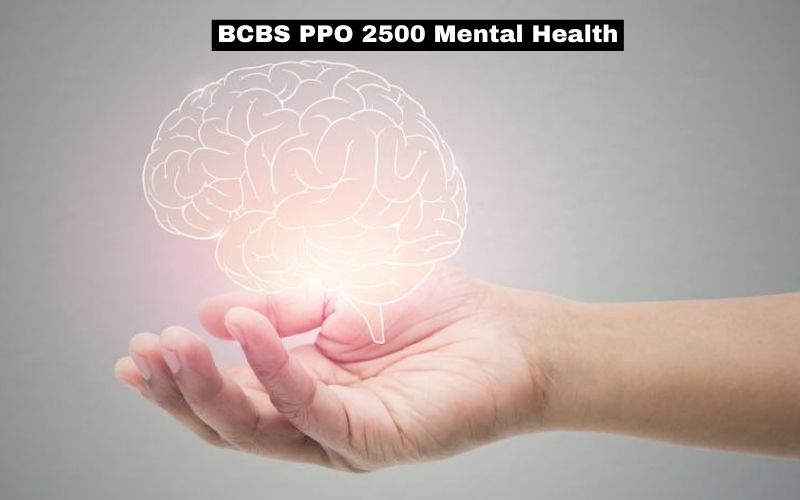Have you ever found yourself questioning the complexities of mental health coverage in your insurance plan? It can be a bit overwhelming at times, especially when it comes to understanding different insurance policies and what they mean for your well-being. If you’re considering the Blue Cross Blue Shield (BCBS) PPO 2500 plan, you’re in the right place. Let’s break down what this plan offers for your mental health needs.
Understanding BCBS PPO 2500
BCBS’s PPO 2500 plan is part of a network that allows for flexible provider choices. PPO stands for Preferred Provider Organization, which means you can receive care from a wide range of providers without needing referrals. This flexibility is particularly beneficial when it comes to mental health services.
The Basics of PPO Plans
In a PPO plan, you’re generally encouraged to use a network of preferred providers, which often results in lower out-of-pocket costs. However, you do have the option to see providers outside of the network, albeit at a higher cost. Understanding this aspect is crucial as it can significantly influence your mental health treatment journey.
Why Choose BCBS?
Blue Cross Blue Shield has been a longtime provider in the health insurance space. You can rely on their well-established network and reputation for quality service. The BCBS PPO 2500 plan offers a variety of mental health benefits, making it a suitable choice for individuals seeking assistance and support.
Mental Health Coverage Under BCBS PPO 2500
One of the key aspects of the BCBS PPO 2500 plan is its comprehensive mental health coverage. This can include a wide range of services, from therapy and counseling to hospitalization for serious mental health conditions.
Therapy Services
Therapy is often a foundational element of mental health treatment. Many people seek therapy for various reasons—depression, anxiety, trauma, and more. Under BCBS PPO 2500, you’ll typically be covered for various types of therapy sessions.
Types of Therapy Covered
- Individual Therapy: One-on-one sessions with a licensed therapist.
- Group Therapy: Sessions involving a group led by a professional, providing support from peers.
- Family Therapy: Therapy sessions that involve family members to address relational issues.
- Psychiatric Services: Evaluations and consultations by psychiatrists.
Be sure to check the specific terms of your plan, as coverage can vary by state and provider.
Medication Management
Medication management can be a crucial part of mental health treatment. If you require medication to manage your symptoms, it’s essential to know how your insurance plan deals with prescription coverage.
Key Points About Medications
- Formulary List: Always check if your medication is on the plan’s formulary, which is a list of covered medications.
- Copay and Coinsurance: Understand whether you’ll have a fixed copay or if you’ll need to pay a percentage (coinsurance) of the medication’s cost.
- Prior Authorization: Some medications may require special approval from BCBS before coverage kicks in.
Understanding these aspects can simplify your experience when it comes to obtaining necessary prescriptions.

This image is property of miro.medium.com.
In-Network vs. Out-of-Network Providers
As mentioned earlier, PPO plans let you choose your providers. However, the distinction between in-network and out-of-network providers can impact your costs and care experience.
In-Network Providers
Choosing in-network providers typically means lower costs. BCBS contracts with these providers to offer services at reduced rates, which means you could save significantly on copays and overall expenses.
Out-of-Network Providers
While you have the option of seeing out-of-network providers, this usually comes at a higher cost. The reimbursement structure can be less favorable, meaning you’ll pay a larger share of the bill. It’s essential to consider this when selecting your mental health professionals.
Benefits of Using In-Network Services
There are several advantages to using in-network providers under the BCBS PPO 2500 plan:
- Lower Costs: Reduced copays and overall treatment expenses.
- No Referrals Needed: Direct access to specialists without having to go through your primary care physician.
- Quality Assurance: In-network providers are contracted by BCBS, meaning they meet specific standards set by the insurance company.

This image is property of miro.medium.com.
Coverage for Mental Health Conditions
The BCBS PPO 2500 plan covers a variety of mental health conditions, which can be incredibly beneficial for those seeking support. Here are some common conditions that the plan typically addresses:
Anxiety Disorders
These can include generalized anxiety disorder (GAD), panic disorder, and social anxiety disorder. Therapy and medication are commonly used treatments.
Mood Disorders
Conditions like depression and bipolar disorder are also covered under this plan. Coverage generally includes therapy, psychiatric services, and medications.
Trauma and PTSD
Post-traumatic stress disorder (PTSD) treatments can involve various therapeutic approaches. The plan offers support for those needing both counseling and medication.
Navigating Your Coverage
It’s understandable to feel a bit lost when navigating your insurance coverage, especially regarding mental health services. Here are some tips to help you make the most of your BCBS PPO 2500 plan:
Know Your Benefits
Thoroughly review your plan documents and understand what mental health services are covered. Look for specifics such as:
- Coverage limits
- Copayment amounts
- Deductibles
- Exclusion lists
Pre-Authorization Requirements
Some services might require prior authorization. Always check with BCBS to see if any specific treatments or medications mandate this approval to avoid surprise bills.
Stay Organized
Keep track of all your appointments, bills, and correspondence with insurance. Having everything documented can help streamline the reimbursement process and make it easier to resolve any potential issues.

This image is property of healthecorner.com.
Mental Health Resources and Support
The BCBS PPO 2500 plan often comes with various resources that can enhance your mental health journey.
Employee Assistance Programs (EAPs)
If your employer offers an EAP, you might gain access to invaluable resources. EAPs typically provide confidential support for personal and work-related issues, including mental health counseling and financial advice.
24/7 Helplines
Many insurance plans, including BCBS, provide access to helplines for immediate mental health support. These resources can be a valuable lifeline when you need someone to talk to.
Online Resources
BCBS often promotes online wellness resources, such as self-help tools and mental health screenings. Leverage these facilities to stay informed and proactive about your mental health.
The Importance of Seeking Help
Taking the step to seek help for mental health can be daunting, but it’s an essential part of self-care. The BCBS PPO 2500 plan is designed to support you by providing a range of services to address your mental health needs.
Breaking the Stigma
Mental health struggles are more common than you might think, and understanding that it’s okay to seek help can be liberating. The more conversations we have around mental health, the better equipped we become to support ourselves and each other.
Finding the Right Fit
Finding a therapist or psychiatrist who resonates with you can take time. Don’t hesitate to try different providers until you find the right fit. Your comfort and trust in your care provider are paramount to successful treatment.

This image is property of blogbuz.co.uk.
What to Expect When You’re in Treatment
When you’re actively seeking treatment, knowing what to expect can ease some anxiety. The process might vary depending on your specific needs and providers, but here’s a general outline of what you might encounter.
Initial Assessment
Your first meeting with a mental health professional might involve a thorough assessment. They’ll ask questions about your symptoms, history, and treatment preferences. This initial information helps in crafting a tailored approach to your care.
Goal Setting
After your assessment, you’ll usually discuss treatment goals. Setting clear, achievable objectives can help both you and your provider to measure progress over time.
Regular Sessions
Depending on your needs, regular sessions might be weekly or bi-weekly. These sessions are where you’ll delve into your experiences, thoughts, and feelings, working through the challenges you face.
Monitoring Progress
Your therapist will regularly check in on your progress. This collaborative approach allows for adjustments in treatment when necessary, ensuring you stay on the right path.
Coping Strategies for Mental Health
While professional help is important, there are many self-care strategies you can implement alongside your treatment plan.
Mindfulness and Meditation
Practicing mindfulness and meditation can aid in reducing anxiety and improving overall mental health. Consider incorporating daily mindfulness activities, even if it’s just a few minutes of focused breathing.
Physical Activity
Regular exercise has been shown to positively impact mental health. Whether it’s a walk in the park, yoga, or a more vigorous workout, find an activity you enjoy and make it a part of your routine.
Journaling
Writing down your thoughts and feelings can provide an outlet for emotions and help you gain clarity on various issues. Consider keeping a daily journal to process your experiences.
Building a Support Network
Never underestimate the power of community. Surrounding yourself with supportive friends and family can provide a strong foundation during tough times. Don’t hesitate to lean on them.
Nutrition
Maintaining a balanced diet can also play a role in mental wellness. Certain foods can affect neurotransmitters and hormones, so aim to eat nourishing meals that support both your physical and mental health.

This image is property of miro.medium.com.
Conclusion: Taking Charge of Your Mental Health
In the end, navigating the complexities of mental health insurance like the BCBS PPO 2500 plan does not have to feel like an uphill battle. With a little understanding and preparation, you can make the most of your coverage, seeking the support you need when you need it.
Remember, prioritizing mental health is a journey, not a destination. By arming yourself with knowledge and resources, you’re taking the first steps towards a healthier, happier you. As you move forward, never hesitate to reach out for help. You’ve got this, and there’s a supportive network ready to help you along the way.